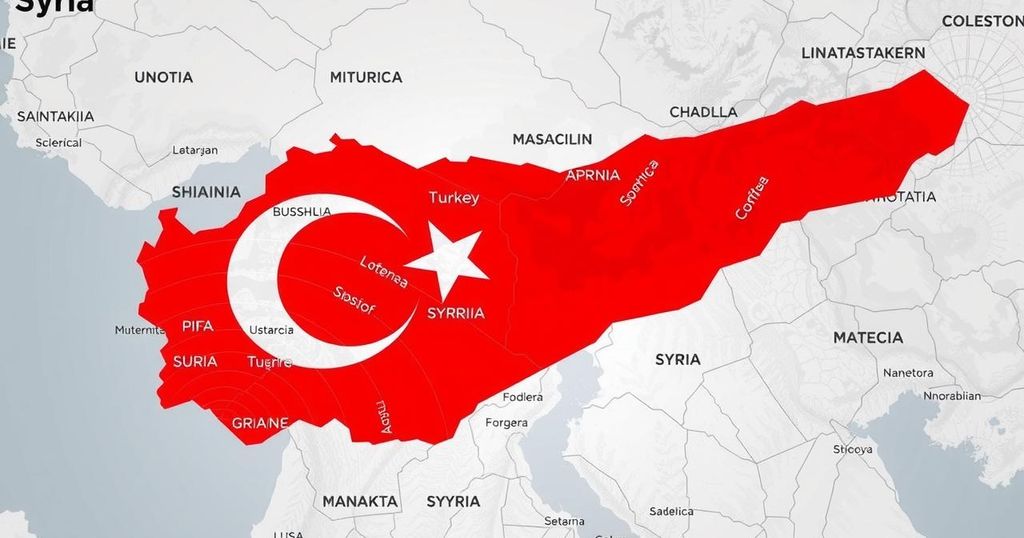Turkey’s Position in Syria: A Premature Claim to Victory

The article critiques the notion that Turkey has achieved victory in Syria after Assad’s fall, highlighting the complexities of regional politics and the limitations of Turkish influence. Despite strategic partnerships, the reality of Turkey’s position is contested by emerging challenges from Arab states and Kurdish forces, necessitating a cautious analysis of Ankara’s real standing in Syria.
The narrative that Turkey has emerged victorious in Syria following the downfall of Bashar al-Assad lacks substantial foundation. Analysts and policymakers alike have prematurely celebrated Ankara’s influence, believing it has secured a dominant position in the war-torn nation. While Turkey indeed finds itself in a strategically advantageous situation, particularly through its partnerships with Hayat Tahrir al-Sham (HTS) and the Syrian National Army, the reality is far more complex.
Recently, Turkish Foreign Minister Hakan Fidan’s visit to Damascus to engage with HTS failed to display Turkey’s expected dominance, as various diplomatic delegations from the US, UK, and EU also sought connections with HTS. Turkey’s cultural affinity narrative cannot obscure the genuine external opportunities now available to Syrian factions.
Additionally, Turkey’s aspirations to eradicate Kurdish power through the Syrian National Army may lead to protracted conflict, as the Kurds do not intend to succumb easily. The limitations of Turkey’s influence and authority in post-Assad Syria, combined with competing interests from Arab nations, underline that any assertions of victory may be unfounded. Erdogan’s prior miscalculations in Syria serve as a sobering reminder that significant challenges lie ahead, requiring a more grounded understanding of Turkey’s actual standing in the geopolitical landscape of Syria.
The article discusses Turkey’s engagement in Syria following the fall of Bashar al-Assad. While Turkey is perceived as benefiting from the situation, with claims of victory stemming from associations with various militant groups, the author argues that Turkey’s position is not as triumphant as suggested. The complexities of regional politics, particularly concerning Kurdish nationalism and the roles of other nations, are highlighted as pivotal factors influencing Turkey’s future in Syria. The narrative posits that the celebration of Turkey’s ‘victory’ is premature due to ongoing challenges and limitations facing the Turkish government.
In conclusion, while Turkey’s actions in Syria have led to certain gains, the assertion that it has won the conflict remains questionable. The dynamics of power are shifting, and Turkey faces formidable challenges from both internal and external actors. The complexities of the region’s political landscape suggest that policymakers should maintain a cautious perspective regarding Turkey’s influence and future in Syria. Therefore, it is premature to claim absolute victory for Turkey amidst these evolving circumstances.
Original Source: foreignpolicy.com






